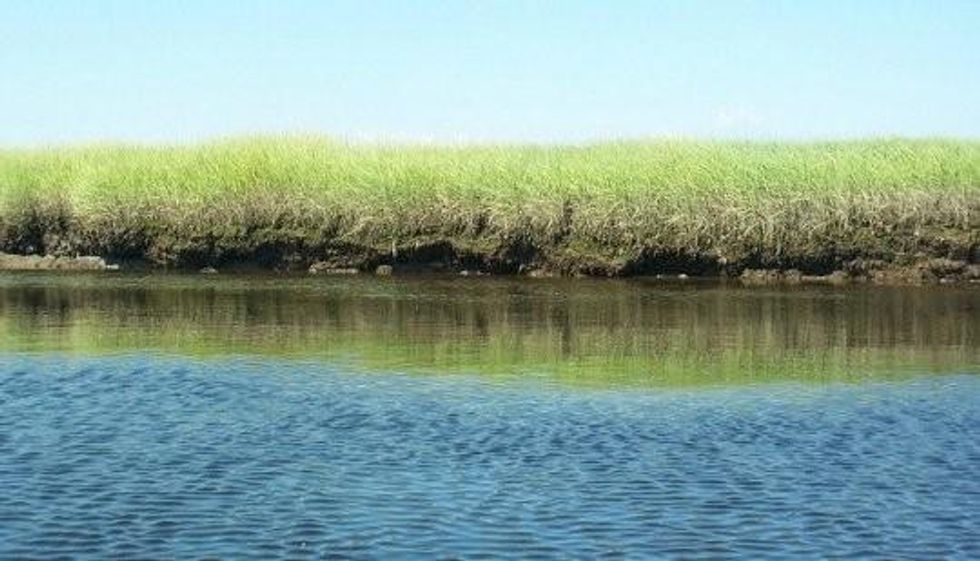The nation's coastal wetlands are being lost at a staggering rate, a recent report shows.
Wetlands, sometimes referred to as nature's "kidneys" for their ability to filter runoff, play an increasingly important role in the face of climate change because they can help buffer storm damage.
Yet from 2004-2009 wetland area in the coastal watersheds of the U.S. dropped by over 360,000 acres, the U.S. Fish and Wildlife Service and the National Oceanic and Atmospheric Administration (NOAA) detail in their report (pdf). That amounts to an annual loss of over 80,000 acres, a 25 percent-increase since the agencies' previous reporting period.
The report looked at coastal wetlands of the Atlantic, Pacific, and Gulf, as well as the shores of the Great Lakes. The Gulf coast was hardest hit, suffering 71 percent of the total estimated loss during the 4-year period.
"When a study shows that an area four times the size of Miami is disappearing every year, it underscores the importance of strengthening our collective efforts to improve wetlands management, to reduce losses and to ensure coastal infrastructure and resources are protected," said Secretary of the Interior Sally Jewell.
In addition to their value in detoxing runoff, the wetlands are hotbeds of wildlife activity.
"While they comprise less than 10 percent of the nation's land area, they support 75 percent of our migratory birds, nearly 80 percent of fish and shellfish, and almost half of our threatened and endangered species. We can't sustain native wildlife for future generations without protecting and restoring the coastal wetlands that support them," said U.S. Fish and Wildlife Service Director Dan Ashe.
But wetlands have monetary value for the nation as well, Mark Schaefer, NOAA Assistant Secretary for Conservation and Management, notes. "The three most valuable species that depend on habitats supported by our wetlands--crab, shrimp, and lobster--had a combined value of $1.6 billion in 2012," he said.
Though the report does not go into detail on the factors threatening wetland loss, it does point to "population pressures and conversion of wetlands to developed or agricultural uses" in addition to severe storms like Hurricane Katrina as contributing factors.
"Because they provide such crucial services it is in our national interest to responsibly use, conserve and protect these coastal resources," the report states.
______________________



